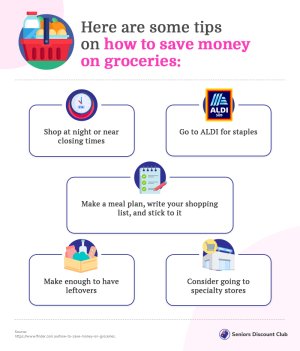Alarming changes Woolies customers have been forced to make to their shopping habits
- Replies 27
If you've been keeping up with the news lately or even just flipping through TV channels, you've probably noticed a lot of talk about the 'cost of living'.
It seems like every day there's a new story about how everything from groceries to housing is getting more expensive. It can be hard to avoid feeling the impact of these changes in our daily lives.
The current economic climate has left many of us feeling the pinch. Inflation, which hasn't been a major concern for a long time, is back with a vengeance, and it's affecting people all over the country.
As we try to make ends meet, we're being forced to find ways to cut back and save money wherever we can.

Many of us had to make some adjustments to our daily routines. Going out for leisure activities may not be an option, so we're finding new ways to entertain ourselves at home.
And when it comes to grocery shopping, many of us are turning to online options to stay within budget and save money.
It's not just individuals who are feeling the impact of these changes; even major companies like Woolworths are reporting shifts in consumer behaviour. As people look for ways to stretch their budgets, they're turning to stores that offer good value for their money.
According to Woolworths' Managing Director and Chief Executive, Brad Banducci, it's clear that the pandemic has had a significant impact on how people shop. As we navigate this 'post-Covid operating environment', customers are changing their buying habits to adapt to the new reality.
One trend that Woolworths has observed is that customers are increasingly turning to online shopping to avoid going to physical stores.
But it's not just about convenience; people are also looking for ways to save money. Many customers are opting for what the supermarket calls 'affordable luxuries' like cheese and ice cream, but only when these items are on sale.
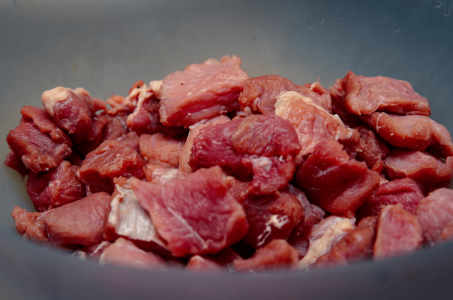
On the other hand, some items have become so expensive that people are simply avoiding them altogether. For example, the cost of red meat has gone up so much that it's no longer a cost-effective option for many shoppers.
Instead, people are turning to more affordable alternatives like poultry.
Dairy products like milk and yogurt are also quite expensive due to the challenges faced by dairy farmers.
Interestingly, there is a positive aspect to this situation as well. Woolworths' Odd Bunch range, which features fruits and vegetables that are misshapen or have imperfections, has seen a surge in sales – a 10 per cent increase!
This likely is because Woolworths is offering these items at a 20 per cent discount compared to their conventionally-shaped counterparts.
This initiative not only helps shoppers save money but also reduces food waste. By offering these 'odd' items for sale, Woolworths can put products that might otherwise be discarded to good use.
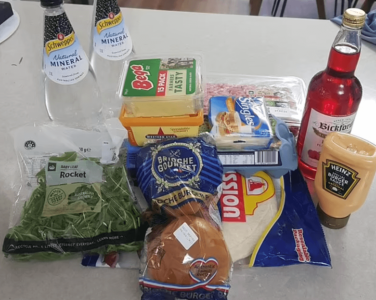
The reality of the cost of living crisis in Australia has been brought to the forefront with a single picture of a typical grocery haul.
The image, which has since gone viral online, shows a shopping cart filled with $78.80 worth of groceries from Woolworths. The haul includes items such as sliced cheese, mince, eggs, and mineral water, among other things.
Many Australians were shocked and outraged by how little they were able to purchase for almost $80.
Some social media users commented that cheese, in particular, seemed to be excessively expensive, with one person jokingly suggesting that it must be 'laced with gold or something'.
Others expressed sadness and frustration at how expensive grocery shopping has become, with one person stating that they often spend a lot of time walking up and down the aisles, only to leave without buying anything due to the high prices.

The rising cost of groceries in Australia is particularly striking given recent news of the impressive profits being made by major supermarket chains. Woolworths, for example, recently announced a 25 per cent increase in profits, while Coles reported an 11 per cent rise in the six months leading up to the end of December.
This has led to questions about whether these profits are being made at the expense of consumers, and whether more needs to be done to ensure that everyday Australians can afford to put food on the table.
The juxtaposition of rising profits and rising grocery prices highlights the urgent need for action to address the cost of living crisis in the country.
It's no secret that grocery shopping can be a stressful experience, especially with prices on the rise. And according to recent research from Finder, it's becoming one of the most anxiety-inducing activities for Australians.
But don't worry, there are still ways to save money on your groceries and alleviate some of that stress.
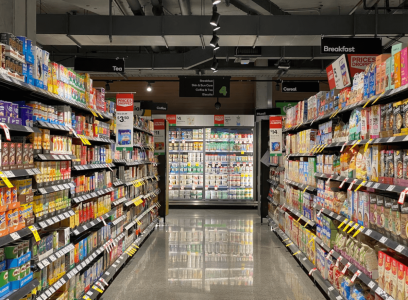
Shop at night or near closing time
Supermarkets often offer discounts on food that is approaching its use-by date in the evenings. These discounts can be found on various items such as pre-packaged vegetables, meat, and ready-made meals. Taking advantage of these discounts is a great way to save money if you're looking for something to eat that night.
Go to ALDI for staples
While ALDI may not be as popular as Woolworths or Coles in Australia, with only 12 per cent of Australians choosing it as their preferred supermarket according to Finder research, it is known for offering cheaper staples. ALDI's business model prioritises cost-cutting measures such as limited product ranges, no-frills store design, and a preference for in-house brands.
As a result, shoppers at ALDI can often find everyday items such as bread, milk, and canned goods at lower prices compared to other supermarkets. This can be particularly beneficial for budget-conscious shoppers who prioritise affordability over brand loyalty or a wider product selection.
However, some shoppers are saying that ALDI is not always the ‘better’ choice for them. If you're interested in learning more about this, you can check out the article here.
Make a meal plan, write your shopping list, and stick to it
Meal planning before heading to the supermarket is a smart way to make the most of your budget.
By planning your meals, you can identify which ingredients you need to buy and how much of each item you will require. This approach can help you use the same ingredients in multiple recipes, reducing the need to buy additional items and making your money go further.
Additionally, meal planning saves you time and energy that you would otherwise spend trying to figure out what to cook every night. It also helps reduce food waste by ensuring that you use up ingredients before they go bad.
To maximise your savings, it's essential to have a shopping list and stick to it, avoiding impulse buys that can quickly add up and blow your budget.
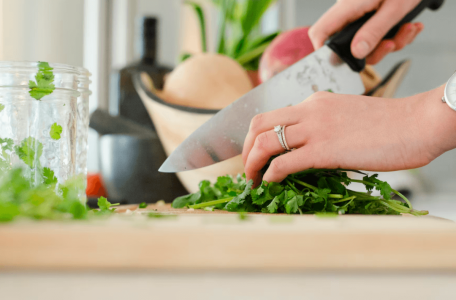
Make enough to have leftovers
Preparing a large batch of food is a cost-effective way to stretch your budget, as it allows you to purchase ingredients in bulk and use up items that might otherwise go to waste. When making dishes such as soups, curries, or Bolognese, consider doubling or tripling the recipe and freezing portions for later use.
Additionally, leftover ingredients from one dish can often be transformed into another meal, such as using roasted vegetables in a salad or pureeing them for a tasty soup. This way, you not only save money but also reduce food waste and get creative with your meals.
Consider going to specialty stores
Specialty stores like butchers and greengrocers can offer better prices than supermarkets for certain items due to their closer relationships with suppliers. These types of stores often source products locally and seasonally, which can result in lower prices for consumers. Similarly, health food and bulk food stores can be more cost-effective for dry ingredients like rice, oats, herbs, and spices.
While it's always a good idea to compare prices across different retailers, shopping at these smaller stores can help you save money on essential groceries. Plus, supporting local businesses can help strengthen the community and reduce your carbon footprint by reducing the distance your food has to travel to reach your plate.
Members, how have you been making do in the face of our ever-changing environment? Let us know in the comments below!
It seems like every day there's a new story about how everything from groceries to housing is getting more expensive. It can be hard to avoid feeling the impact of these changes in our daily lives.
The current economic climate has left many of us feeling the pinch. Inflation, which hasn't been a major concern for a long time, is back with a vengeance, and it's affecting people all over the country.
As we try to make ends meet, we're being forced to find ways to cut back and save money wherever we can.

The rising cost of living is posing challenges for many Aussies, who are forced to adapt their shopping habits to make ends meet. Credit: Unsplash/Viki Mohamad.
Many of us had to make some adjustments to our daily routines. Going out for leisure activities may not be an option, so we're finding new ways to entertain ourselves at home.
And when it comes to grocery shopping, many of us are turning to online options to stay within budget and save money.
It's not just individuals who are feeling the impact of these changes; even major companies like Woolworths are reporting shifts in consumer behaviour. As people look for ways to stretch their budgets, they're turning to stores that offer good value for their money.
According to Woolworths' Managing Director and Chief Executive, Brad Banducci, it's clear that the pandemic has had a significant impact on how people shop. As we navigate this 'post-Covid operating environment', customers are changing their buying habits to adapt to the new reality.
One trend that Woolworths has observed is that customers are increasingly turning to online shopping to avoid going to physical stores.
But it's not just about convenience; people are also looking for ways to save money. Many customers are opting for what the supermarket calls 'affordable luxuries' like cheese and ice cream, but only when these items are on sale.

In response to the soaring cost of red meat, shoppers are increasingly opting for poultry as an alternative source of protein. Credit: Unsplash/Usman Yousaf.
On the other hand, some items have become so expensive that people are simply avoiding them altogether. For example, the cost of red meat has gone up so much that it's no longer a cost-effective option for many shoppers.
Instead, people are turning to more affordable alternatives like poultry.
Dairy products like milk and yogurt are also quite expensive due to the challenges faced by dairy farmers.
Interestingly, there is a positive aspect to this situation as well. Woolworths' Odd Bunch range, which features fruits and vegetables that are misshapen or have imperfections, has seen a surge in sales – a 10 per cent increase!
This likely is because Woolworths is offering these items at a 20 per cent discount compared to their conventionally-shaped counterparts.
This initiative not only helps shoppers save money but also reduces food waste. By offering these 'odd' items for sale, Woolworths can put products that might otherwise be discarded to good use.

A picture of an average grocery haul has brought to light the harsh realities of Australia's current cost of living crisis. Credit: Reddit.
The reality of the cost of living crisis in Australia has been brought to the forefront with a single picture of a typical grocery haul.
The image, which has since gone viral online, shows a shopping cart filled with $78.80 worth of groceries from Woolworths. The haul includes items such as sliced cheese, mince, eggs, and mineral water, among other things.
Many Australians were shocked and outraged by how little they were able to purchase for almost $80.
Some social media users commented that cheese, in particular, seemed to be excessively expensive, with one person jokingly suggesting that it must be 'laced with gold or something'.
Others expressed sadness and frustration at how expensive grocery shopping has become, with one person stating that they often spend a lot of time walking up and down the aisles, only to leave without buying anything due to the high prices.

Are Coles and Woolworths cashing in on inflation with their skyrocketing profits? Credit: Coles, Woolworths.
The rising cost of groceries in Australia is particularly striking given recent news of the impressive profits being made by major supermarket chains. Woolworths, for example, recently announced a 25 per cent increase in profits, while Coles reported an 11 per cent rise in the six months leading up to the end of December.
This has led to questions about whether these profits are being made at the expense of consumers, and whether more needs to be done to ensure that everyday Australians can afford to put food on the table.
The juxtaposition of rising profits and rising grocery prices highlights the urgent need for action to address the cost of living crisis in the country.
It's no secret that grocery shopping can be a stressful experience, especially with prices on the rise. And according to recent research from Finder, it's becoming one of the most anxiety-inducing activities for Australians.
But don't worry, there are still ways to save money on your groceries and alleviate some of that stress.

There are still ways to save money on your groceries and get the most bang for your buck. Credit: Unsplash/Franki Chamaki.
Shop at night or near closing time
Supermarkets often offer discounts on food that is approaching its use-by date in the evenings. These discounts can be found on various items such as pre-packaged vegetables, meat, and ready-made meals. Taking advantage of these discounts is a great way to save money if you're looking for something to eat that night.
Go to ALDI for staples
While ALDI may not be as popular as Woolworths or Coles in Australia, with only 12 per cent of Australians choosing it as their preferred supermarket according to Finder research, it is known for offering cheaper staples. ALDI's business model prioritises cost-cutting measures such as limited product ranges, no-frills store design, and a preference for in-house brands.
As a result, shoppers at ALDI can often find everyday items such as bread, milk, and canned goods at lower prices compared to other supermarkets. This can be particularly beneficial for budget-conscious shoppers who prioritise affordability over brand loyalty or a wider product selection.
However, some shoppers are saying that ALDI is not always the ‘better’ choice for them. If you're interested in learning more about this, you can check out the article here.
Make a meal plan, write your shopping list, and stick to it
Meal planning before heading to the supermarket is a smart way to make the most of your budget.
By planning your meals, you can identify which ingredients you need to buy and how much of each item you will require. This approach can help you use the same ingredients in multiple recipes, reducing the need to buy additional items and making your money go further.
Additionally, meal planning saves you time and energy that you would otherwise spend trying to figure out what to cook every night. It also helps reduce food waste by ensuring that you use up ingredients before they go bad.
To maximise your savings, it's essential to have a shopping list and stick to it, avoiding impulse buys that can quickly add up and blow your budget.

Cooking a big batch of food is often more cost-effective than making a single meal. Credit: Unsplash/Alyson McPhee.
Make enough to have leftovers
Preparing a large batch of food is a cost-effective way to stretch your budget, as it allows you to purchase ingredients in bulk and use up items that might otherwise go to waste. When making dishes such as soups, curries, or Bolognese, consider doubling or tripling the recipe and freezing portions for later use.
Additionally, leftover ingredients from one dish can often be transformed into another meal, such as using roasted vegetables in a salad or pureeing them for a tasty soup. This way, you not only save money but also reduce food waste and get creative with your meals.
Consider going to specialty stores
Specialty stores like butchers and greengrocers can offer better prices than supermarkets for certain items due to their closer relationships with suppliers. These types of stores often source products locally and seasonally, which can result in lower prices for consumers. Similarly, health food and bulk food stores can be more cost-effective for dry ingredients like rice, oats, herbs, and spices.
While it's always a good idea to compare prices across different retailers, shopping at these smaller stores can help you save money on essential groceries. Plus, supporting local businesses can help strengthen the community and reduce your carbon footprint by reducing the distance your food has to travel to reach your plate.
Members, how have you been making do in the face of our ever-changing environment? Let us know in the comments below!

